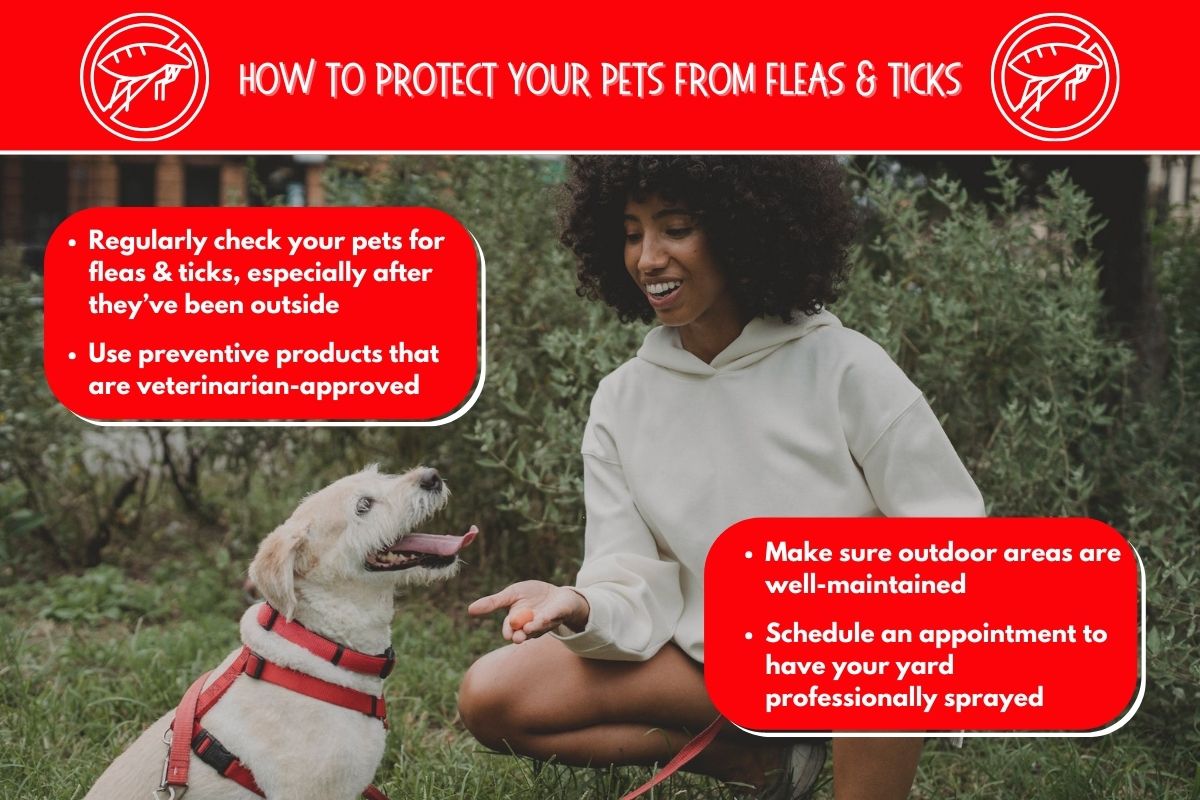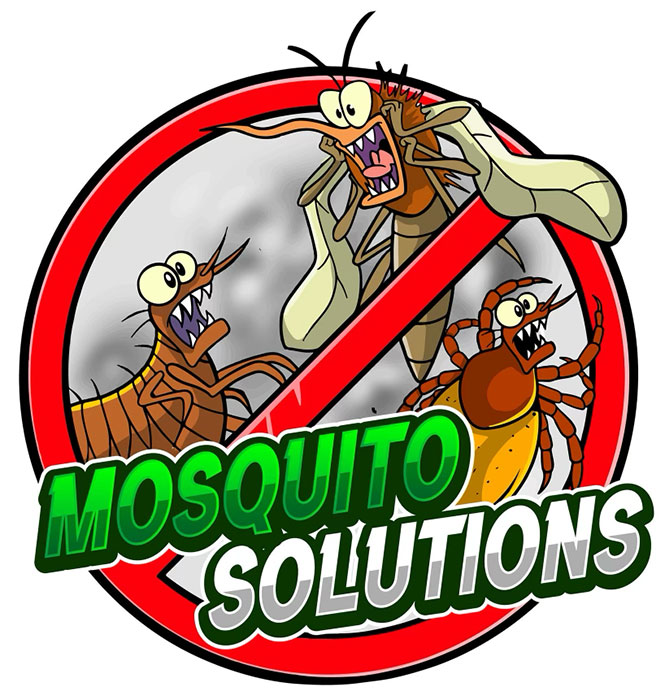It’s a common misconception that pests only thrive during the spring and summer months, which is why, when we say goodbye to warmer weather, it might be tempting to let your guard down when it comes to pest control. Unfortunately, while you may see less activity, you can still be susceptible to bites from mosquitos, ticks, and fleas. And there are members of your family that are especially vulnerable to these pesky parasites – your pets.
Fleas aren’t a new issue for pet owners. If you’re lucky enough to have a four-legged friend, you’re probably well-versed in daily checks, as well as topical and oral bug repellents. However, there are other preventative measures you can take. Call Mosquito Solutions now to schedule an appointment to have your yard sprayed to hold fleas at bay. You can get in touch with us online or by phone at 631-528-2029.

What Time of Year Are Fleas Most Active?
Flea activity reaches its peak when conditions are warm and humid, and location largely dictates weather. In Suffolk County, it may be natural to assume that fleas are more of a concern in the summer months when it’s regularly 70 degrees Fahrenheit or higher. What most don’t realize is that flea season in New York starts in April and ends in December. Temperatures are falling and winter feels like it’ll be here sooner rather than later, but your pets are still in the danger zone right now.
…flea season in New York starts in April and ends in December.
When do fleas go away?
Fleas tend to be less active in winter and may even go dormant in certain climates. Yet, the unfortunate reality is that fleas are a problem all year long. If your home has heating, that’s all fleas need to flourish (as long as they have a pet host).
How Can Fleas Hurt My Pets?
Fleas are much more than a nuisance pest. They feed on both human and animal blood, and they can introduce all sorts of health problems that can be fatal. Here are some ways fleas can be harmful to your pets:
- They increase the risk of diseases and parasites. Fleas are notorious transmitters of diseases and parasites. They are known carriers of flea-borne typhus, Bartonellosis (also known as cat scratch disease), flea tapeworm, and the plague. Yes, that plague.
- Their bites can cause allergic reactions. Some pets have allergies to flea saliva and exposure can cause itching, skin irritation, scabbing, and hair loss in severe reactions.
- Skin infections can result from bites. If your pet is persistently scratching and nipping at flea bites, this can cause lacerations that aren’t able to heal completely. These wounds can become infected with bacteria or fungus.
- Bad infestations can lead to anemia. When infestations have advanced too much, your pet will be at risk for developing anemia – a life-threatening condition in which there aren’t enough healthy red blood cells to carry oxygen to your pet’s organs. This is a major concern for smaller and younger animals.
What Are the Signs of Fleas That I Should Look For?
Spot checks aren’t always enough. Adult fleas are small and you may not see them until they’ve already reproduced multiple times. Pets can’t speak for themselves to tell you when something is wrong, but there are signs you can be on the lookout for:
- Your pet is scratching more than usual.
- Your pet’s skin is red or irritated.
- Your pet is suddenly weak or lethargic – this could be an early sign of anemia.
- You can see small dark specks on your pet’s coat and/or bedding. This is flea waste.
What Should I Do if My Pet Has Fleas?
If you think your animal companion has fleas, contact your veterinarian. You may not have to take them in for an office visit, but your veterinarian can advise you on the right treatment based on the type of pet you have, their age, and their medical history. You’ll likely be recommended to try a flea collar, topical treatment, an oral medication, or a combination of some or all of them. There are also flea shampoos available in most retail stores for more serious infestations.
As part of your treatment plan, you’ll also want to thoroughly clean your home. You should try to vacuum the entire house, paying special attention to areas where your pet likes to lounge. In addition, be sure to wash any pet bedding and toys with hot water and detergent.

How Can I Protect My Pets From Fleas?
The easiest way to stop fleas is to never have them at all. A proactive attitude is always the best method to protect your pets. Prevention comes in many forms – grooming should be a firm part of your routine, and to be extra diligent, incorporate the use of a flea comb to find and remove fleas and their eggs. There are also preventive products available that can be given to your pets monthly that offer protection year-round. But of course, check with your veterinarian before introducing new products to your fur buddy.
One of the more overlooked ways to prevent fleas – as well as ticks and mosquitos – is to have your yard sprayed by a professional pest control company. At Mosquito Solutions, we understand that fleas aren’t a one-time issue. We’ll come up with a maintenance plan that works for you and your pets, ensuring you stay protected for the long haul. We believe in an environmentally safe approach to pest control and use an eco-friendly spray called Stop the Bites. You can rest easy knowing that you’re keeping fleas away without worrying about toxic products causing harm to you or your pets.
Help Your Pets Fend Off Fleas
Don’t wait until fleas become a problem to take action. Get ahead of the tiny invaders and keep your pets safer by scheduling an appointment with Mosquito Solutions. Give our team a call at 631-528-2029 or get in touch with us online now!

Recent Comments